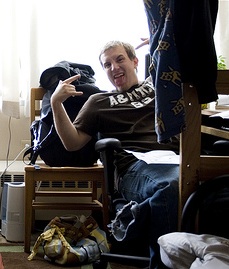
Originally posted Jan. 26, 2017
Prospective college students consider a wide variety of factors when deciding on a university. While academics and career opportunities are often high on the list, colleges known as top party schools have a special appeal. Everyone loves a good time, but as Occidental College sociologist Lisa Wade describes in her new book, American Hookup: The New Culture of Sex on Campus, this idea of college as “fun” is a fairly recent trend some troubling consequences.
In a feature with Time Magazine, Dr. Wade explains how American universities changed from predominantly strict, formal institutions to environments known for casual hookups and wild parties. Whereas in colonial America, colleges were highly regulated places, as the student body underwent a shift, so did campus culture. Wade explains,
“They [colonial college students] were generally obedient, but as the eighteenth century came to a close, colleges were increasingly filled with wealthy sons of elite families. These young men weren’t as interested in higher education as they were in a diploma that would ratify their families’ hoarding of wealth and power. Predictably, they had a much lower tolerance for submission.”
This rebellious attitude led to widespread expulsions across many elite universities, as well as the early foundations of Greek life. Fraternities became hubs for parties, alcohol, and casual sex, a legacy that still holds strong on many college campuses across the United States. And while the party scene can be tempting for many, American Hookup highlights how this emphasis on noncommittal and unemotional sex also sets the stage for widespread rape and sexual assault.
“Thanks to the last few hundred years, most colleges now offer a very specific kind of nightlife, controlled in part by the same set of privileged students that brought partying to higher education in the first place, and designed to promote, as much as possible, the ‘big four-year org’ that students both desire and dread.”

